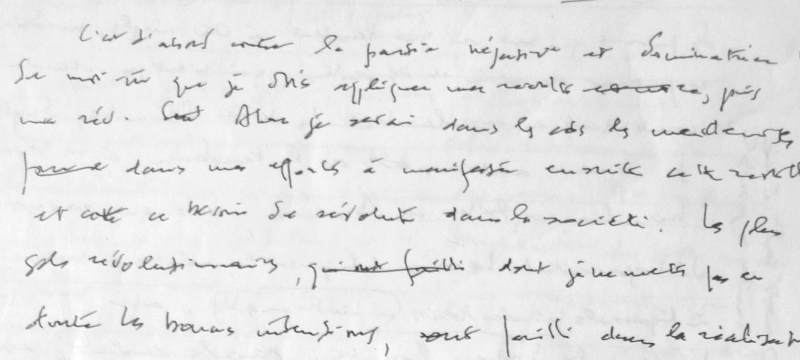Sun Tze
孙子 |
|
From his short treatise The Art of War :
"First,
the acme of military strategy is to achieve victory without bloodshed.
This first point is the direct result of the consideration of the
economic, moral and political cost of war in a world where that
it is practiced within the same society, imperial China, and aims at
the grabbing of resources and the subjugation of the vanquished. There
is no interest, in Sun Zi, to destroy the coveted resources or to kill
those who will be tomorrow our subjects. The notion of hereditary enemy
does not yet exist.
Second,
war is fundamentally about seeking comparative advantage, and it's less
about destroying an opponent than making them lose the will to fight.
This second point involves the use of force which is justly
proportionate to the nature of the political objective pursued. It is
fundamental, at Sun Zi, to save oneself, to trick, to destabilize, and
to leave to shock only the role of coup de grace given to a helpless
enemy.
Finally,
knowledge of the opponent is the key factor in any military victory.
This third point is the direct projection into military affairs of a
traditional Chinese philosophy which holds intelligence and knowledge
in general in high esteem. Spying for Sun Zi is the pinnacle of
military action; process by which a warchief can have an overview of
the situation and, if necessary, know in advance and without fear of
being wrong who will win and who will lose the war. " (French Wikipedia)
|
|
|
|
Zhuāngzǐ
莊子
|
|
Zhuāngzǐ
said that the world “does not need to be governed; in fact, it should
not be governed ”, and that “good order results spontaneously when
things are left to their course ”. The American economist Murray
Rothbard said of him that he was "perhaps the first anarchist in the
world". (French Wikipedia)
|
|
|
|
Antisthenes
|
|
"Antisthenes
taught that the only philosophy is ethics, and that virtue is taught
and sufficient for the happiness of the sage. It manifests itself in
actions, it dispenses with speeches and theories. Consequently, one
must lead a life as simple and moral as possible, and break away from
social conventions. " (French Wikipedia)
|
|
|
|
|
|
|
"It
is partly because of their outrageous features that Diogenes' writings
fell into near total oblivion. Indeed, Politeia (The Republic), a work
written by Diogenes, taken up and later supported by the Politeia of
Zeno by Cition, attacked many values of the Greek world, admitting,
among other things, total sexual freedom, indifference to the burial,
equality between men and women, the negation of the sacred, the
questioning of the city and its laws, the suppression of weapons and
money, self-sufficiency. " (French Wikipedia)
|
|
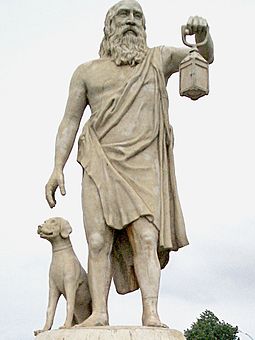
|
|
Epicurus |
|
"In
physics, he argues as Democritus that everything that exists is made up
of indivisible atoms. Atoms move randomly in a vacuum and can combine
for the old aggregates of matter. The soul in particular would be one
of these aggregates of atoms, not a spiritual entity, in particular
according to his disciple Lucretius. In ethics, the Greek philosopher
defends the idea that the sovereign good is pleasure, defined
essentially as "absence of pain". In logic or epistemology , Epicurus
considers that sensation is the source of all knowledge and thus
announces empiricism.
His writings were destroyed during the advent of Christianity,
established state religion of the Roman Empire, from the reign of
Constantine I, but especially during the reign of Theodosius I
(379-395), because his writings written not compatible with Christian
morality. This autodafé was so strong, that today only fragments of the
work of Epicurus remain, often reported by Diogenes Laërce, author of
the third century. "(French Wikipedia)
He freed mankind from futility and the destructive illusion of the need for immortality.
|
|
|
|
Etienne
de la Boétie
|
|
By his book Traité de la servitude volontaire (Treatise on voluntary servitude), he showed the mechanisms of social servitude, and the means to get rid of it.
|
|
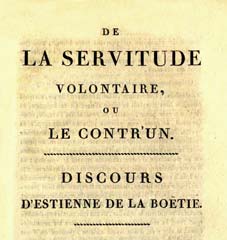
|
|
Machiavel
|
|
Through his book The Prince, he revealed the mechanisms of social domination, and, indirectly, the means to overcome it.
|
|
|
|
| Joseph Buonarroti |
|
Gracchus
Babeuf et la conjuration
des égaux
Where we see the
practical importance of the fundamental principles of Freedom,
Equality and Solidarity.
Free download in French Language here :
https://gallica.bnf.fr/ark:/12148/bpt6k6274580m.texteImage
|
|
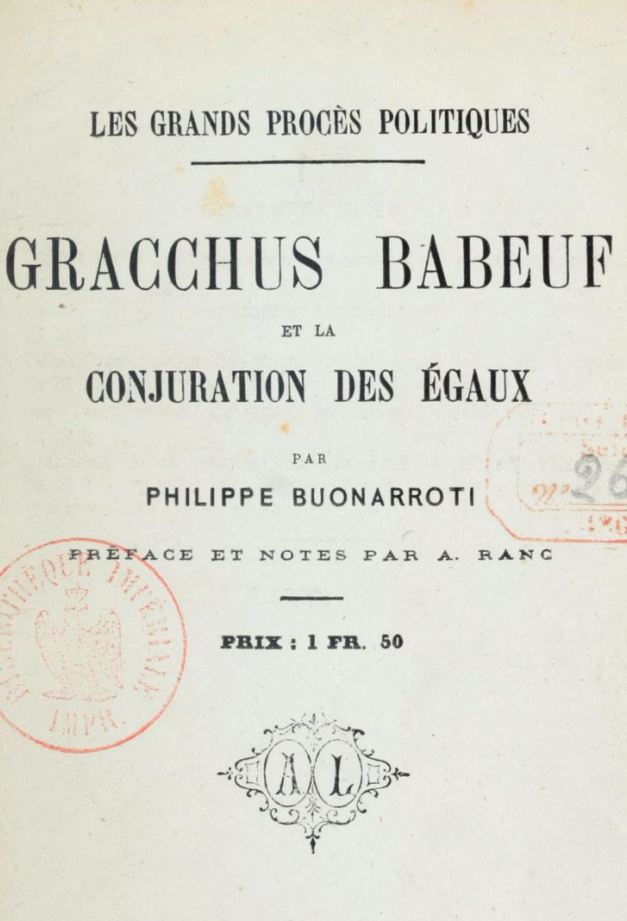
|
|
Pierre-Joseph Proudhon
|
|
"The only revolutionary theorist of the 19th century to come from the working class.
Self-taught, thinker of non-state libertarian socialism, supporter of
mutualism and federalism, he was the first to claim to be an anarchist
in 1840, a supporter of anarchy, understood in its positive sense:
"Freedom is anarchy, because it does not 'admits not the government of
the will, but only the rule of law, that is, of necessity'.
He is the author of over sixty books.
In 1840, in his first major work, What is property? or Research on the principle of Law and Government,
it makes famous the formula "Property is theft". In this same work, he
is the first author to use the expression "scientific socialism"; he
write s: "in the same way the sovereignty of the will gives way before
the sovereignty of reason, and will end up being annihilated in a
scientific socialism". (French Wikipedia)
|
|
|
|
Mikhail Bakunin
|
|
IHe wrote:
"I am really only free when all the human beings around me, men and
women are also free. The freedom of others, far from being a limit or
the negation of my freedom, is on the contrary the necessary condition
and confirmation. I only really become free thanks to the freedom of
others, so that the more free men are around me, the deeper and wider
their freedom, and the more extensive, deeper and wider becomes my
freedom. "
|
|
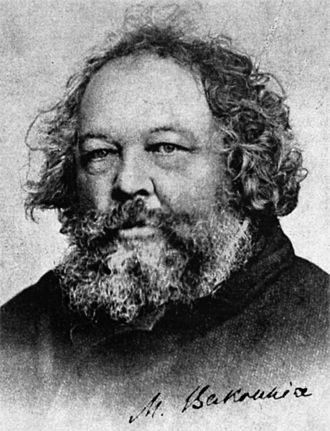
|
|
Pierre Kropotkine
|
|
For his conception of mutual aid and libertarian communism.
|
|
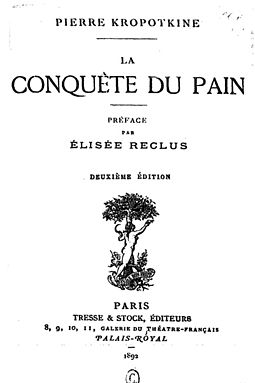 |
|
Voline
|
|
In his book The Unknown Revolution,
he gave concrete evidence, as a direct participant, which explains how
the ideal of the Soviets was transformed into a dictatorship against
the Soviets, and this from the time of Lenin and Trotsky.
|
|
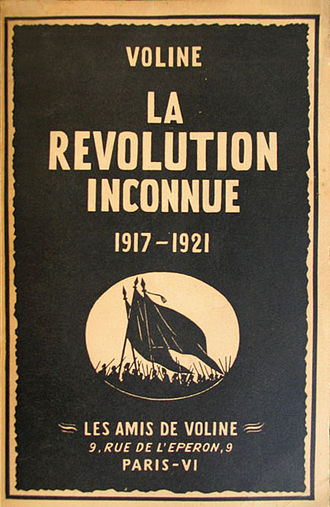
|
|
Gaston Leval
|
|
Espagne libertaire 1936-1939 (Libertarian Spain 1936-1939)
is the book where, as a direct participant, he gives the proofs which
show the successes of workers 'and peasants' self-management, and those
responsible for its failure: on the one hand, the fascists, on the
other hand, the Stalinists.
|
|
|
|
|
|
|
|
|
|
Situationist authors
|
|
De
la misère en milieu étudiant considérée sous ses aspects
économique, politique, psychologique, sexuel et notamment
intellectuel et de quelques moyens pour y remédier (Poverty
in the student environment considered in its economic, political,
psychological, sexual and in particular intellectual aspects and some
means to remedy it).
All the content is in the title of this brochure.
|
|
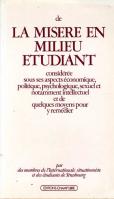
|
|
John Perkins
|
|
“The
financial assassins are highly paid professionals who defraud billions
of dollars in various countries of the globe. They direct money from
the World Bank, the US Agency for International Development (USAID) and
other "humanitarian" organizations into the coffers of large companies
and into the pockets of a few wealthy families who control the planet’s
natural resources. Their main weapons: fraudulent financial reports,
rigged elections. bribery, extortion, sex and murder. They play a game
as old as the world, but which has reached terrifying proportions in
this era of globalization.
I know what I'm talking about... because I was a financial assassin myself. "
John Perkins,
preface to The Confessions of an Economic Hit Man
|
|
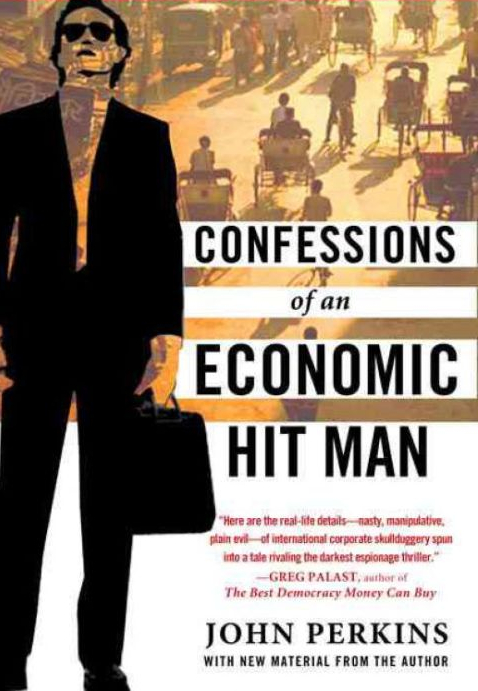
|
|

